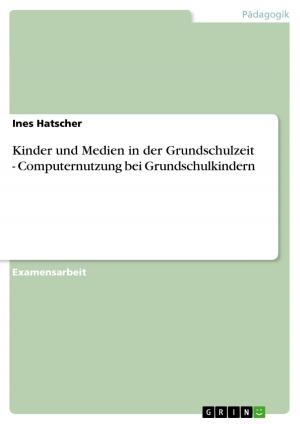Spoilers in Somalia: The self-sustaining chaos and its supporters
Nonfiction, Social & Cultural Studies, Political Science, International, International Relations| Author: | Dirk Spilker | ISBN: | 9783638437509 |
| Publisher: | GRIN Verlag | Publication: | November 10, 2005 |
| Imprint: | GRIN Verlag | Language: | English |
| Author: | Dirk Spilker |
| ISBN: | 9783638437509 |
| Publisher: | GRIN Verlag |
| Publication: | November 10, 2005 |
| Imprint: | GRIN Verlag |
| Language: | English |
Seminar paper from the year 2005 in the subject Politics - International Politics - Region: Africa, grade: 1,3, University of Potsdam (Institut für Politikwissenschaft), course: Democracy and Good Governance in Developing Countries, 26 entries in the bibliography, language: English, abstract: This paper provides an explanation for the continuous failure of peace processes in Somalia over the last decade, using based on an extended rational choice / public choice approach. Based on the concept of 'Spoilers' and their main motives as outlined by Schneckener (2003), it provides a mapping of the main actors in stateless Somalia and analyses their respective motives. As a result, this paper argues that the behavior of the main actors in Somalia is completely rational. The two main motives out of which the actors involved have spoiled peace processes in the past reflect the basic dichotomy that has been discussed in recent literature concerning intra-state wars. The most important reason for spoiling peace processes in Somalia is greed, which applies mostly to local warlords and businessmen as well as to international companies. To a lesser degree also neighboring countries are affected by greed. The second important motive is grievance; which affects mostly neighboring countries as external actors, and - to a lesser degree - 'separatist' actors from the northern autonomous regions of Somalia. Two other motives - 'creed' and 'autism of violence' are not as important, but also play a distinct role for some actors, in the first case foremost for members of local militias, in the latter case for the 'separatist' regions. Based on the detailed analysis, this paper provides a summary mapping of the relevant actors according to their predominant motives. It concludes with some strategies on how to deal with the different Spoilers in the Somali context.
Seminar paper from the year 2005 in the subject Politics - International Politics - Region: Africa, grade: 1,3, University of Potsdam (Institut für Politikwissenschaft), course: Democracy and Good Governance in Developing Countries, 26 entries in the bibliography, language: English, abstract: This paper provides an explanation for the continuous failure of peace processes in Somalia over the last decade, using based on an extended rational choice / public choice approach. Based on the concept of 'Spoilers' and their main motives as outlined by Schneckener (2003), it provides a mapping of the main actors in stateless Somalia and analyses their respective motives. As a result, this paper argues that the behavior of the main actors in Somalia is completely rational. The two main motives out of which the actors involved have spoiled peace processes in the past reflect the basic dichotomy that has been discussed in recent literature concerning intra-state wars. The most important reason for spoiling peace processes in Somalia is greed, which applies mostly to local warlords and businessmen as well as to international companies. To a lesser degree also neighboring countries are affected by greed. The second important motive is grievance; which affects mostly neighboring countries as external actors, and - to a lesser degree - 'separatist' actors from the northern autonomous regions of Somalia. Two other motives - 'creed' and 'autism of violence' are not as important, but also play a distinct role for some actors, in the first case foremost for members of local militias, in the latter case for the 'separatist' regions. Based on the detailed analysis, this paper provides a summary mapping of the relevant actors according to their predominant motives. It concludes with some strategies on how to deal with the different Spoilers in the Somali context.















